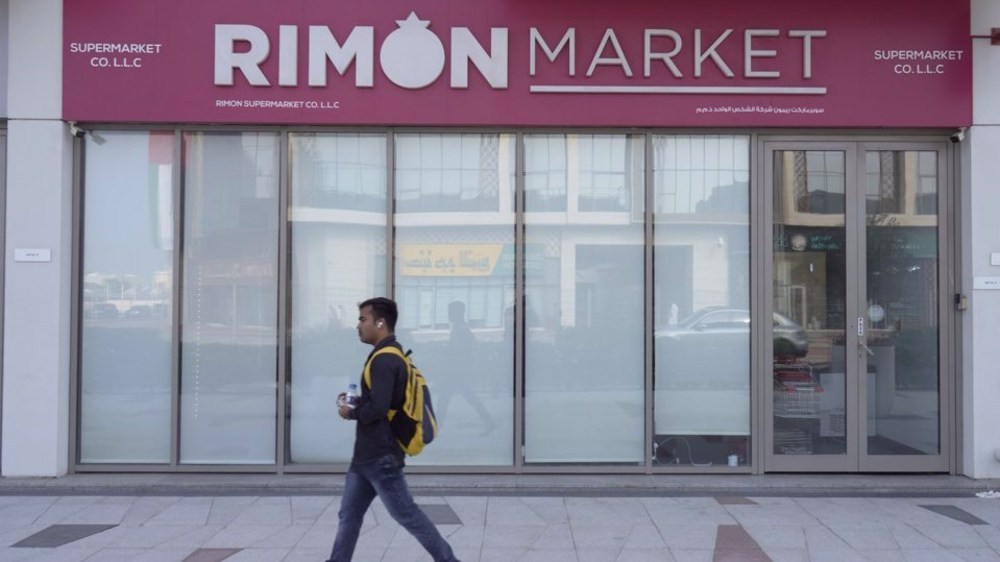Lockheed to arm Bahrain as US fuels regional race
The tiny Persian Gulf country of Bahrain has signed a $1.1 billion deal with US weapons manufacturer Lockheed Martin to buy 16 F-16 warplanes.
The Pentagon announced the deal on Friday, without giving any details about the agreement between the American arms manufacturer and Manama.
The deal was sealed month after the signature of another US agreement for the sale of 16 F-16s worth over $2.3 billion to Bahrain. Vice President Mike Pence had said the November agreement was a “big boost for American jobs and security.”
Analysts have accused Washington of pouring oil on the flames in the Middle East in order to convince its Arab allies to buy US-made weapons.
Hisham Jaber, the head of the Middle East Center for Studies and Public Relations, has told Sputnik that large stockpiles of arms are standing idle in the desert, while the Persian Gulf kingdoms are striking new arms deals.
"Over the recent years, the Arab countries have spent $700 billion on military contracts," Jaber said. "The US is persuading the countries of the Persian Gulf that Iran is a potential enemy, although Tehran didn't drop any hints about the possibility of war," the scholar added.
Iran’s military spending amounted to just above $12 billion in 2016, in comparison to the Saudi spending of more than $61 billion, according to the Stockholm International Peace Research Institute (SIPRI).
The acquired American arms, he said, were not being used in counterterrorism operations, since they were designed for waging wars with a regular army.
According to Al Jazeera Center for Studies, “purchases of expensive weaponry by various Arab states have reached the highest volume since the end of the Cold War era.”
Saudi Arabia has been the second largest arms importer in the world for the past five years and the largest recipient of US weapons, accounting for 13 percent of US arms exports.
Last May, Riyadh sealed a multi-billion arms deal with Washington worth $350 billion over the next 10 years and $110 billion that will take effect immediately.
The United Arab Emirates (UAE), Saudi Arabia’s key regional ally, also increased its arms imports by 63% between 2012 and 2016. The country has led an increasingly interventionist foreign policy in hot spots like Libya, Syria and, most recently, Yemen.
The UAE's military expenditures are projected to grow to $31.8 billion by 2021 from $23.6 billion in 2016, according to SIPRI.
Saudi Arabia, the UAE, and allies have been pounding Yemen since 2015 to restore its Riyadh-friendly former government. Hundreds of thousands of people have either been killed or injured since the Saudi-led war.
The countries are also locked in their worst standoff in decades with Qatar, and the West has been manipulating the crisis to sell weapons to either side.
Last December, Qatar agreed to buy fighter jets and armored vehicles as part of 12 billion euros worth of commercial contracts with France, bolstering its military capability in the face of a boycott by other Arab states.
Despite Trump’s support for the Saudi position, the United States did not object to a $12 billion deal finalized in June 2017 to sell F-15 fighter jets to Qatar. Doha also signed an $8 billion deal to buy Typhoon fighter jets from the United Kingdom.

Last year, it was reported that the US Department of Defense allowed American missile manufacturer Raytheon Co. to provide $150-million worth of Patriot missile systems and associated equipment to Qatar.
In June 2017, Saudi Arabia, the UAE, Bahrain and Egypt cut ties with Doha, accusing it of backing terrorists, a charge Doha denies.
VIDEO | Yemenis praise the military for its successful operations against Israel
VIDEO | Israel continues to bomb Gaza homes
VIDEO | An insider's view of the country: Meybod City in Yazd
‘All wars have rules. All of those rules have been broken’ by Israel
VIDEO | Report flags India’s violation of rights of Rohingya detainees
Turkey's foreign minister meets Syria's de facto leader in Damascus
VIDEO | US Syria plots
'Next to impossible' to rescue patients from Gaza's Kamal Adwan Hospital: Director













 This makes it easy to access the Press TV website
This makes it easy to access the Press TV website